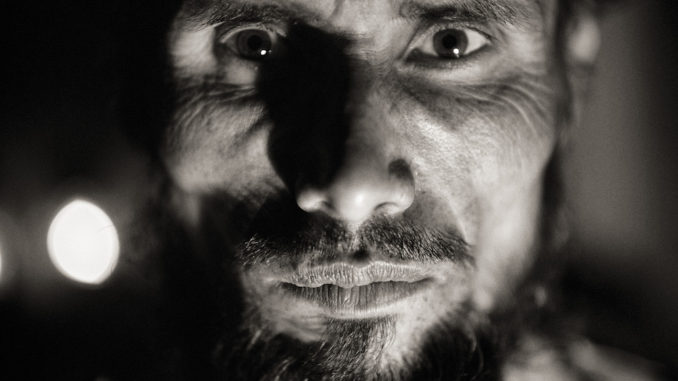
By Lani Felicitas
It’s best to engage rather than just reject (and boycott),” Fazal Sheikh said during his lecture at the Portland Art Museum, reflecting on the artist’s role in visiting underdeveloped countries to take photographs and document current atrocities around the world. This decision to engage is apparent in Sheikh’s work as an international photographer that tells stories of refugee camps, war catastrophes, hope and hardship in Africa, the Middle East and Northern India.
In his first Portland exhibit, “Common Ground” at the Portland Art Museum, one can look forward to the simplicity of his portraits and black and white photography. Sheikh prefers to work without color in order to capture “the most essential” of his subject that will give more life to it. Sheikh’s portraits showcase how the self is and must be a reflection of what is occurring in society.
During his lecture at the Portland Art Museum, Sheikh discussed the importance of collaboration with the communities that he worked with. Often he asked permission from elders in refugee camps and other decimated communities to live among his subjects and document their struggles. He can name almost every single person he photographed. Sheikh’s photography is more of a humble collaboration than one of creativity.
Sheikh does not attempt to mask or embellish his subjects’ stories but rather tells directly stories according to what they suggest is most pressing.
“The way in which certain subjects present themselves to me is a way that I couldn’t have conjured up myself,” Sheikh said about a moment where he was photographing a mother, daughter and aunt. “But it showed this character of solidarity. It instructed me about the different ways that refugees mangle through difficult moments in their lives but yet there are still there to bolster one another. They are still there to create and recreate their sense of community.”
At the end of his lecture, Sheikh discusses the difficulty he had in portraying multiple conflicting sides of stories from the oppressed.
“I insisted upon the idea of working in both communities,” Sheikh said of his time in Israel-Palestine. “A Leftist Israeli said to me ‘well you have to make a choice.’ And I never really accepted that … One has to choose which side to look to. You can apprehend them both equally in the same time. And what does it mean when you look to one set of images and you feel an affinity for one group and another page you feel affinity for the other side,” he said as his presentation flicked through ordinary portraits of an Israeli on the left and a Palestinian on the right. He does this to show what he calls “a fundamental human connection” that transcends global conflict. However, by naming the exhibit “Common Ground” and including photographs of individuals from both sides of the conflict, Sheikh runs the risk of evading accountability to larger political forces that entrench the war. And as moving as his portraits are, portraits may focus the majority of attention on the individual and neglect the international politics, especially the role of the U.S. intervention, that determines what happens to communities on the ground.
Nevertheless as an international activist, Sheikh’s core work of portraits has won several awards in photography to call attention to the marginalized by using his art to call attention to global struggles and their solutions. If you find yourself wanting to get involved after visiting the exhibit, the Portland Art Museum shares books about refugee crises and diaspora such as N. H. Senzai’s “Escape from Allepo” and Zeina Abirached’s “I Remember Beirut.” The museum also provides information from nonprofit organizations such as Portland, Meet Portland and International Refugee Center of Oregon in ongoing efforts to reduce stigma and ensure basic rights to migrants and refugees in the Portland area and around the world.
Subscribe to the Mossy Log Newsletter
Stay up to date with the goings-on at Lewis & Clark! Get the top stories or your favorite section delivered to your inbox whenever we release a new issue.

Leave a Reply